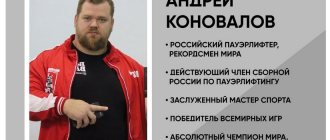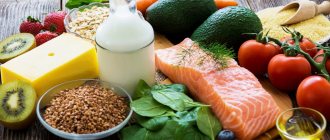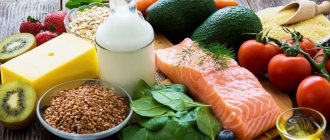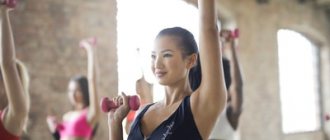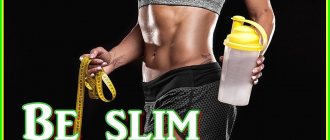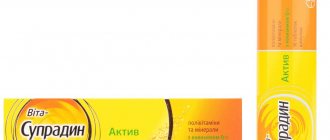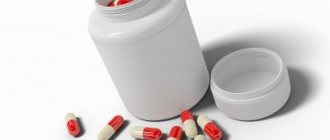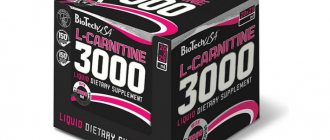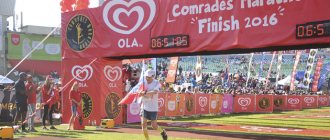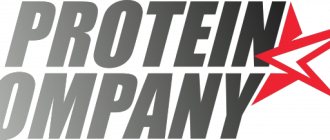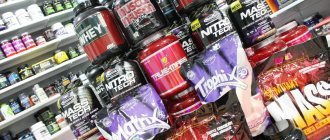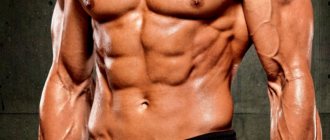The basic rule of a healthy approach to food and eating habits is maintaining a balance of nutrients and energy consumption (calories). Therefore, if you regularly engage in fitness, the composition and volume of your daily diet must be adjusted. This applies to all types of physical activity - it doesn't matter whether you prefer to calmly concentrate on your body while doing yoga or you like to do high-intensity interval training. Energy consumption changes, the menu needs to be selected in such a way as to get the maximum benefit from training.
It is not recommended to follow a strict restrictive diet when doing fitness. Only in extreme cases, for a short time, to lose one or two kilograms, carefully weighing the health risks. Feeling exhausted and weak, dieters cannot recover from physical activity and often quickly give up fitness. The other extreme is a menu that is too high in calories. You shouldn’t think that fitness “allows” you to eat uncontrollably.
The right approach is a varied, tasty diet for you personally with a balanced ratio of macro- and micronutrients and sufficient, but not excessive, calorie content. Such a diet will give you strength for training, your body will become not only fit, but also healthy, and your mood will always be high.
Maintaining protein-carbohydrate and drinking balance
It is generally accepted that nutrition during physically demanding activities should be predominantly protein. This is not entirely true: it is very important to supplement it with complex carbohydrates, which replenish the energy lost during training. Without them, you will constantly feel tired and weak, which will affect your athletic performance. The diet for athletes should also include fats - with the right dosage, they help maintain health and even promote weight loss.
The most important rule for proper nutrition for fitness is drinking balance. Enough fluid will help:
- avoid dehydration after exercise - it manifests itself in headaches, irritability, weakness, and rapid fatigue;
- improve intestinal and gastrointestinal motility, speed up metabolism and removal of harmful substances from the body - especially if the correct drinking balance is supplemented with a diet rich in fiber;
- lose weight more intensely.
To calculate the optimal amount of fluid, use the universal formula: 30 ml of water for every kilogram of body weight. The resulting volume should be evenly distributed throughout your waking hours, drinking the first 200-300 ml of liquid on an empty stomach, and the last one or two hours before bedtime.
Squirrels
Their importance in nutrition for fitness is invaluable. High-protein foods help “build” muscles faster, forming a beautiful relief, stimulate metabolic processes, promoting weight loss. The amount of protein should be at least 40-45%.
Carbohydrates
The optimal proportion of complex carbohydrates in the diet (from 40-45%) will fill the body with energy and protect against seasonal diseases. The most important nutrients, when oxidized in the body, “help” proteins build muscles. To maintain a balance between fitness and nutrition, it is advisable to eat carbohydrate foods in the first half of the day. To lose weight, avoid simple carbohydrates.
Fats
Fitness enthusiasts should not completely eliminate fats from their diet. They are needed by the immune, reproductive system, brain and other organs. It is advisable to increase the amount of vegetable fats, but not to give up animals, but to reduce their consumption. Give preference to a diet rich in polyunsaturated acids. Fats should not be left for the evening - their amount on the dinner menu should be minimal.
Features of the diet when actively visiting the gym and other loads
During training, you need to supplement your diet with carbohydrates and proteins.
Thanks to carbohydrates, the body, brain, and nerves are saturated with energy.
In the body, they are converted into glycogen, which is stored in the muscles and liver and is actively broken down during exercise.
With a deficiency of carbohydrates, the athlete’s body is depleted, and then the effectiveness of training decreases.
With extremely hard training, even healthy people can develop a state of hypoglycemia (a critical decrease in blood glucose levels). The condition can have dangerous consequences, even death, without timely medical care. Hypoglycemia sets in very quickly and is therefore extremely dangerous for those who suffer from diabetes and are actively involved in sports. In their case, strict control of blood glucose levels is necessary.
Important! The most valuable carbohydrates for the body are slow carbohydrates, which are slowly broken down and gradually release energy.
Proteins are essential for recovery as well as growth of muscle tissue. They are also involved in a number of other reactions and processes, but their main purpose is to ensure cell growth and division. During exercise, muscle tissue is destroyed, then in order to restore and increase its volume, it needs proteins that are synthesized from amino acids, which are monomers of the former. With protein deficiency, muscle mass will decrease.
Expert opinion
Evgeniy Kislitsa
Practicing surgeon. Certified massage master. Two-time vice-champion and heavyweight champion of regional kettlebell lifting competitions.
This is due to the fact that to replenish energy costs, the body can actively break down muscle tissue, as a result of which the necessary energy will be released. In this case, the breakdown of adipose tissue will begin only when the processes of energy release due to muscle breakdown are ineffective. These are the physiological characteristics of the human body. You should also take into account the fact that the body does not need an excessive amount of muscle tissue. Therefore, with a moderate supply of proteins to the body, suitable for the majority of the population (except for athletes and prominent adherents of a healthy lifestyle), it will independently regulate the content of muscle tissue in the body and, if necessary, break it down. This is due to the fact that in order to maintain a significant amount of muscle, the body needs to consume a significant amount of energy and protein, which is impractical for the average person with his level of physical activity. Thus, the internal mechanism of saving energy and nutrients in the body works.
Fats should not be consumed before exercise, as they slow down metabolism and cause heaviness in the stomach. However, there is no need to completely abandon them; healthy fats are necessary for the heart, blood vessels, endocrine glands, and central nervous system.
Water is necessary to renew tissue fluid, form protein cells, and supply muscles with oxygen. Water also ensures the processes of transformation of substances in the body and is a source of necessary minerals, a medium for their accumulation and transport, and plays an important role in the functioning of cells. When used correctly, the athlete tolerates stress more easily and muscle pain decreases.
Important! During training, you should not drink fresh juices, fermented milk drinks, coffee, or strong tea. The best drink to drink during training is still water or water with creatine dissolved in it.
Energy consumption
During training, muscles are stressed and fats are burned. This process is accompanied by the production of adrenaline and cortisol (stress hormones). When their level increases, the body first begins to actively break down all tissues, but this does not mean that in this way it will be possible to lose weight, fat will be burned less pronounced than muscles, and the increased level of hormones is harmful to health.
Insulin (a protein hormone of the pancreas) ensures that glucose is absorbed by cells. This is necessary to provide the body, primarily the brain, with the necessary energy. Fast carbohydrates after exercise lead to a rapid increase in glucose levels, which increases the production of insulin and its entry into the blood. Only with adequate production of this hormone is an effective weight loss process possible.
If the training is intense, then weight loss is largely achieved through it.
This is interesting! During strength training, a person loses 7-9 kcal per minute, with short-term intense exercise - 13.5 kcal, high-intensity interval training - up to 12 kcal, home fitness helps to get rid of 6-10 kcal.
Carbohydrate window
The period after exercise, during which the body's sensitivity to nutrient absorption increases, is called the carbohydrate or metabolic window. Despite the name of the period, at this time the body actively absorbs both proteins and carbohydrates. If you charge the body with energy at this moment, it will be spent on restoration and muscle growth. To close the carbohydrate window, you need to consume about 15 g of simple carbohydrates. The amount of protein required during this period is 2 times less, and the amount of fat is 2.5-3 times less.
Carbohydrate foods stop the processes of tissue destruction with the release of energy (catabolism), since they can quickly supply the body with the necessary calories.
Important! Fast carbohydrates are best for closing the carbohydrate window, but they should be consumed in moderation. Complex nutrients are absorbed more slowly, which minimizes the benefits of the metabolic window.
If a person wants to lose weight, then he needs to consume carbohydrates in the following dosage – 0.15 g/kg. To increase muscle mass, the dose of carbohydrates after training is increased to 35-40 g, and the dose of protein is increased to 15-20 g.
The post-workout meal should also include carbohydrates, only complex ones. This is necessary to compensate for glycogen stores.
Our calculator will help you correctly calculate your carbohydrate window.
Around the same time as the carbohydrate window, you need to eat a protein-rich food or take protein, this will allow the proteins to be absorbed as much as possible and almost completely be used to restore old and build new muscle tissue.
Do I need a special diet for physical activity?
On average, a person can consume 1500 kcal per day to quickly lose weight. However, for those people whose weight and height are greater or less than average, calorie needs vary from the average. To clarify this value, you need to consult a personal trainer.
As mentioned, fasting while exercising is prohibited. This will only weaken your body. The menu should be varied. The composition of the diet depends on the severity of the load, age, health status, and expected results.
1.5-2 hours before training you need to recharge with complex carbohydrates and lean proteins.
During exercise, you should drink small sips of water as needed. If you notice excessive sweating or thirst, weakness, or a feeling of overheating, then increase the volume of fluid.
After training, close the carbohydrate window. 2 hours after physical activity you can have dinner. Caffeine has a stimulating effect on the nervous and cardiovascular systems, so the drink should not be consumed before bedtime, and people with heart or nervous system problems or mental disorders should avoid drinking caffeine altogether.
What to eat before and after workouts: a set of foods that stimulate fat burning
It is prohibited to train with an empty or full stomach. To effectively lose weight, 2 hours before class you need to eat oatmeal or buckwheat with water, a vegetable salad, fruit (except bananas, grapes), a sandwich with diet bread or bran bread.
During prolonged exercise (long-distance running or cycling), you need to eat a carbohydrate supplement or a chocolate bar. In other cases, it is not recommended to eat during classes.
To close the carbohydrate window, you can use fruit juice, banana, or a carbohydrate drink. If hunger continues to torment you, you can snack on a green apple. After classes, you can eat boiled dietary meat, fish, steamed protein omelet, cottage cheese (low fat), drink a protein shake or eat a protein bar. It is also recommended to eat a vegetable salad with olive oil.
If you train late in the evening, then have cottage cheese and tea for dinner. If you wake up early, for example, at 5 a.m., then before class, eat fruit and drink unsweetened coffee.
Attention! If you want to lose excess weight, then boil, steam, bake (without oil) foods.
Vitamins, supplements, complexes
If your goal is to speed up fat burning, then supplement your diet with vitamin-mineral complexes and sports supplements. This is especially necessary for people who eat poorly.
Those who are losing weight need BCAA amino acids, which allow them to keep their weight within limits, increase body tone, and accelerate muscle growth.
Athletes can take L-carnitine, which will speed up the breakdown of fat. However, this supplement will only be effective during anaerobic exercise (running, cycling, cardio exercises).
Attention! L-carnitine, although not a highly effective fat burner, is one of the safest of them. Therefore, it can be considered a dietary supplement suitable for almost everyone. Although it is recommended to consult your doctor before taking it.
While losing weight, it is recommended to take vitamin and mineral complexes. Which will strengthen the immune system, improve the condition of the skin, hair and overall well-being.
Whey protein is great for filling your body with protein. In addition, the athlete should take Omega-3 fatty acids, which reduce cholesterol levels, improve the functioning of the heart and blood vessels, and help normalize weight. You can eliminate dietary errors with the help of fat and carbohydrate blockers.
Important! The effectiveness of these additives does not have clear evidence, other than the empirical experience of those who have used them and the statements of the manufacturers. Therefore, whether to use such supplements or not is an individual matter.
A personal trainer will advise you on the rules for taking sports supplements.
Diet
To balance fitness and nutrition, calculate the amount of calories needed to maintain your current weight, taking into account the physical demands of specific activities. This figure can be used as a starting point when creating a weight loss program. A correct and healthy calorie deficit should not exceed 300-400 kcal - it can be achieved by reducing the caloric content of food or just by fitness.
When planning your diet, remember:
- you need to eat in small portions - to maintain balance five times a day (three main meals and two snacks between them), for weight loss six to seven;
- the interval between meals should not exceed three hours;
- Breakfast should be hearty and dinner should be light, so foods high in fat and carbohydrates should be moved to the morning and afternoon.
It is advisable to eat dishes baked in the oven, steamed, stewed or minimally fried in vegetable oil. The diet should consist of lean meat, eggs, poultry, fish and plant products, and complex carbohydrates. When following a diet, give up carbonated drinks, foods containing a lot of sugar, fast food and other “harmful foods” - you can indulge in them, but not often.
Nutrition after, before and during exercise
What to eat before fitness classes
When choosing what to eat before fitness, give preference to protein dishes that are low in calories and eat them no later than one to two hours before exercise. If you were unable to have a full lunch or dinner, half an hour before training you can eat a handful of berries, fruit, something fermented milk or drink a protein shake. 200-250 ml of tea without milk, sugar, or still mineral water will be useful.
What to do during classes
Fitness and nutrition don't go well together - it's better to give preference to drinking. It is necessary to drink water during training, carefully monitoring your condition and paying attention to signs of dehydration: dry mouth, dizziness, severe fatigue. You need to drink in small sips, every 15-20 minutes. If the duration of the training exceeds an hour, it is worth adding juice or a protein shake to the water. You should not drink a lot of fluids during physical activity, so as not to put extra stress on your heart.
What to eat after class
The body must replenish the energy expended, so athletes are recommended to take protein-carbohydrate foods – the “carbohydrate window” – after 40-100 minutes. It will help restore muscles, satiate, speed up metabolism, and replenish glycogen reserves. If you are on a weight loss diet, do a “carbohydrate window” one and a half to two hours after training. Your diet should include:
- omelette, steamed, boiled meat or fish;
- complex carbohydrates – whole grain pasta or bread, baked potatoes, brown rice;
- sour natural juice - cranberry, grape, orange (diluted with water).
It is advisable to have a minimum amount of fat in your diet after exercise. It is better not to use them at all for the first two hours after training. After 4 p.m., reduce your calorie intake, even if you have a high-intensity workout planned for the evening. Be sure to drink enough water afterward to replenish the loss of intracellular fluid.
How to eat properly while playing sports: diet basics
Food is the key to success and will help you achieve your desired goals faster. Regardless of your goals (lose extra pounds or gain weight through muscle), it is a properly designed diet that will ensure success. Read our article on how to start eating healthy.
Yes, you need to exercise regularly, but if you violate the nutrition rules, you will never achieve results.
If there are few calories, then the workout will not be effective, which is why the person will feel very tired. Food that is too high in calories also has a bad effect on your figure and condition. If you seriously decide to exercise and are focused on long-term results, then switch to a new eating style.
When drawing up a menu, you need to take into account the type of sport that a person will engage in and his level of fitness. Ideally, a nutritionist or professional trainer should select a menu for a future athlete.
You may also be interested in:
Gym Workout Nutrition for Women for Weight Loss
What to eat after a workout to lose weight
However, there are basic principles of nutrition for athletes that are suitable for everyone:
- Fasting during exercise is strictly contraindicated.
- It is forbidden to overeat or snack on the go.
- Experts will help you create a menu depending on the person’s goals and level of physical fitness.
- During a meal, you need to concentrate solely on the food, and not on the TV or telephone conversation.
- Chew foods at least 30 times so as not to overload your digestive organs.
- You should eat only when you are hungry; eating for company or out of boredom is strongly discouraged.
In addition, the athlete should always control the amount of calories in the diet.
Attention! A strict diet has a bad effect on athletes, their immunity is weakened, the condition of their hair, skin, nails worsens, hormonal disorders occur, etc.
The importance of eating during exercise
A novice athlete needs to adjust his meal schedule taking into account the time and amount of sports activities.
You should also take into account your working hours and rest so that the body has time to recover.
Before training, you need to load up on protein. 2-3 hours before going to the gym you need to eat food rich in proteins. But if, due to your work schedule, you cannot prepare a full meal, then eat fruits or dairy products. Read more about what to eat before training to burn fat.
You should eat 30-40 minutes before training. 1-2 hours after the gym you need to eat a hearty meal.
This is interesting! Immediately after exercise, the body continues to break down the remaining substances that come out of the muscles, so you should not overload it with a hearty lunch. If you don't plan to exercise that day, skip the snack.
The source of energy that is so necessary for training is glucose. This substance can be obtained from the following products: sugar, baked goods, chocolate, sweet carbonated drinks.
But it is more correct to extract glucose from complex carbohydrates: cereals, fruits, legumes. The amount of fast carbohydrates should be reduced to a minimum, giving preference to complex ones. So, all the energy will be spent on muscle work, and fats will not accumulate in the body.
You need to eat often (5-6 times a day) with an interval of 3 hours, but in minimal portions. Then you will saturate your body with useful substances, energy and will not feel hungry.
Read more about proper nutrition in the article at the link.
Why you need to drink a lot of water
For proper metabolism you need to drink more fluid. During sports activities, due to excessive stress, sweat begins to be released, as a result, the body loses a lot of fluid.
These losses need to be replenished, as chemical reactions may be disrupted and the body will not receive energy.
Many novice athletes do not know whether they need to drink water while working out in the gym for a better weight loss process.
Experienced trainers strongly recommend not to forget about maintaining water balance. But this needs to be done in small portions (up to 100 ml at a time). The norm for professional athletes is from 3 to 3.5 liters.
This is interesting! Weighing will help determine whether there is enough fluid in the body. To do this, you need to step on the scales before and after training. If the difference in weight is 500 g or more, then the body does not have enough fluid, which means you need to drink more water. Also, the state of water balance can be determined by the color of urine: if it is bright, then you need to increase the daily volume of fluid.
Athletes are recommended to drink filtered mineral water, fresh juices, compotes or vitamin and mineral drinks. To replenish fluid reserves in the body, it is recommended to drink small sips (20-25 ml) during training. The total volume of water or other drink during the entire class period should be 200-250 ml. After completing a set of exercises, a person can drink 350-400 ml of liquid.
Useful and prohibited foods
Proper carbohydrates saturate the body with energy, which is often lacking during training.
Complex carbohydrates are considered the healthiest, including sweet potatoes, brown rice, oatmeal, whole grain bread, broccoli, spinach, etc. Fresh fruits contain a lot of sugars, so their amount in the diet needs to be controlled.
Proteins restore and accelerate muscle growth. The best sources of quality proteins: chicken, turkey, egg whites, soy and soy products, and white fish. You can supplement your diet with protein shakes to lose weight and strengthen muscles.
To get a beautiful, toned body, you need to eat healthy fats: flax seeds, avocado, olive oil. They charge the body with energy. The main thing is to maintain moderation.
The diet can be supplemented with peanut, olive, and almond oil. Fats can also be obtained from eggs, meat and fish.
In order not to reduce all your efforts to nothing, you need to exclude the following products from the menu:
- White bread, pastries (butter, shortbread or yeast dough).
- Confectionery.
- Alcohol.
- Fast food.
- Fast food.
- Store-bought juices, sodas.
- Tonic drinks (coffee, strong black tea, cocoa).
- Canned, smoked products, pickles.
- Store-bought sauces.
- Fried, fatty, spicy foods.
- Sausages.
In addition, you need to limit the daily amount of salt and sugar.
The main thing is balance
An athlete should pay attention to the size of food portions. Determining the right dose is not difficult. At one time a person can eat the size of a palm of protein and 2 palms of complex carbohydrates.
Twice or three times a day, meals should be supplemented with healthy fats. For example, 5 ml of olive and flax oil for seasoning dishes or a small sandwich with peanut or almond butter.
You can consume 1-2 servings of fruits per day, and vegetables can make up almost half of your daily diet. They contain valuable vitamins, minerals, and fiber.
Questions about caloric content of foods
An adult should consume 2200 kcal per day.
An athlete who is working on gaining muscle mass should receive 3000 kcal. These are average figures; a nutritionist or trainer will help you finally determine the daily amount of calories. If you want to lose weight, this does not mean that you need to follow a strict diet, although periodic fasting does not hurt. To lose weight, you need to expend more energy than you consume. For those losing weight, you need to subtract from 200 to 500 kcal per day from the number of calories.
If your goal is to build muscle, then you need to create a diet that contains more calories than you burn.
Hearty meals will give you more energy, which is needed for intense workouts. Then you need to increase the number of calories by 200-500. However, calories should be added gradually and cardio exercises should be included in the training program.
Important! Be sure to weigh yourself at least once a week at the same time. This is necessary to understand how correctly you have composed your diet and, if necessary, adjust it.
Be sure to check out:
Simple recommendations from famous trainers on what to eat before a workout to lose weight What to eat before a workout: recommendations from experts What is the best thing to eat after strength training and cardio to burn fat What and how long can you eat after a workout
Examples of menus for fitness classes
To maintain the right balance between fitness and nutrition, you need to choose healthy foods that fill you up, replenish the loss of vitamins and nutrients, but do not make you feel heavy. To make it easier to navigate, we will give examples of universal dishes for those involved in fitness.
For breakfast while on a diet, omelettes with stewed vegetables, whole grain toast, nuts or nut butter are recommended. You can stick to oatmeal or similar porridge, boiled brown rice with chicken breast, or lean steak. For lunch you should choose soups in light broths with cereals, meat, fish with a vegetable side dish, dairy products, including cheese. Complex carbohydrate cereals, low-fat cottage cheese, poultry, seafood, decoctions of berries and rose hips are suitable for dinner.
The diet should consist of:
- lean meat - chicken, veal, turkey;
- fish rich in Omega-3 acids and seafood, which are high in protein and microelements;
- eggs – to lose weight, eat only protein;
- green vegetables - spinach, cucumbers, cabbage, celery (but be careful with avocados, they are healthy, but high in calories);
- seasonal fruits and berries with a low glycemic index - apples, strawberries, etc.;
- vegetable oils, nuts and seeds (in small quantities);
- low-fat fermented milk products, milk 2-5% fat;
- bran bread, whole grain pasta, unprocessed cereals;
- greenery.
To get the maximum benefit from fitness, you need to be careful about food, its composition and quality. But what to do if you have no time or desire to cook? The BeFit service will help you balance fitness and nutrition without unnecessary hassle. Specially developed ready-to-eat meal delivery programs are convenient for everyone who watches their form. Neatly packaged containers, convenient to take with you, KBZHU in products is precisely selected for a specific purpose. The programs will help you gain muscle mass, lose weight, or maintain an optimal regime during active sports. Choose your delicious, varied menu and always be in shape with BeFit.
Healthy food delivery Moscow | Delivery of ready-made food for a week reviews | Diet business lunch | Detox juices with delivery | Order fish dishes | Complex for weight loss | Delivery of ready-made sports nutrition | Order vegetarian food to your home in Moscow
Short
The calorie intake during training depends on the tasks that you set for yourself at a particular stage. If you are currently working on increasing muscle mass, you will need more calories. But after this, it is better to reduce calories in order to get rid of the excess fat gained along with the muscles. The general rule: try to give your body enough easily digestible protein and slow carbohydrates an hour after training, and distribute the remaining calories throughout the day as you wish, based on your current needs.
